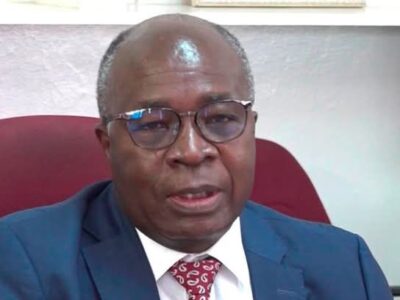The government has confirmed that the Kafue River remains severely polluted following an acid and heavy metals spill from a broken tailings dam at Sino Metals Leach Zambia Ltd in Kalulushi.
Fisheries and Livestock Minister, Peter Kapala, stated that the spill, which occurred on February 18, 2025, had caused extensive damage to aquatic life, disrupted local livelihoods, and continues to pose a serious public health risk.
In a statement issued Thursday in Lusaka, Kapala described the situation as an ecological disaster that threatens the river’s role as a vital source of food and income for over 300,000 households reliant on fisheries.
Government scientists from the Central Veterinary Research Institute (CVRI) and the University of Zambia’s School of Veterinary Medicine have reportedly confirmed that heavy metal contamination in the river had exceeded the safe limits set by the World Health Organization (WHO) and the Food and Agriculture Organization (FAO).
“The findings indicate severe pollution, resulting in mass fish deaths and unsafe water conditions,” Kapala explained.
He added that the government has intensified monitoring efforts along the Kafue River to track metal concentrations and toxicity levels.
Kapala reiterated that fishing activities in affected areas had been suspended until authorities confirm the safety of the fish for consumption.
“Efforts are underway to restore the river’s ecosystem, including fish restocking plans and biosecurity measures to prevent further environmental degradation,” he said.
Kapala called on both local and international partners to support this initiative and emphasized the need for financial and technical resources for long-term environmental assessments.
He urged residents along the Kafue River, particularly in Central and Copperbelt provinces, to follow precautionary measures outlined by health and environmental authorities.
Communities have been advised to avoid consuming fish from the river until comprehensive tests confirm its safety, and to report any unusual occurrences such as mass fish deaths or water quality changes.
Kapala assured the nation of government’s commitment to protecting aquatic ecosystems, ensuring food security, and safeguarding the livelihoods of those dependent on fisheries.
WARNING! All rights reserved. This material, and other digital content on this website, may not be reproduced, published, broadcast, rewritten or redistributed in whole or in part without prior express permission from ZAMBIA MONITOR












Comments